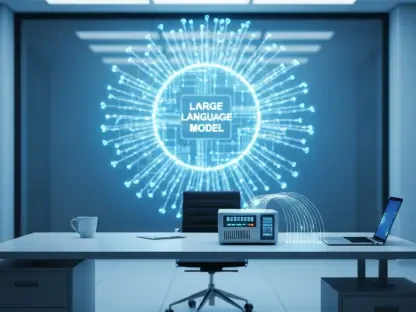Artificial intelligence has made incredible strides, with large language models (LLMs) demonstrating unprecedented capabilities in natural language processing. However, these powerful entities often stumble when faced with knowledge-intensive tasks requiring intricate reasoning. This has driven researchers from Beijing University of Posts and Telecommunications and Hangzhou Dianzi University to develop a groundbreaking solution: LightPROF.
A Leap Toward Ultra-Efficient AI Models
In the relentless quest for ultra-efficient AI solutions, innovators aim to harness technology to tackle complex reasoning tasks. Modern AI models face significant challenges, particularly when delving into domain-specific inquiries, where the depth and reliability of knowledge become crucial. This need for precision and efficiency has highlighted the deficiencies of current models, prompting a reevaluation of how to enhance AI’s reasoning prowess effectively.
Breaking Down Large Language Models
Large language models have been pivotal in AI’s evolution, showcasing remarkable capabilities across varied applications. These models, laden with vast parameters, excel in zero-shot tasks and general understanding. However, their limitations become apparent in scenarios demanding specific, nuanced knowledge. Despite their scale, the inability to maintain coherence in domain-specific tasks often hampers their performance.
Structured sources like Knowledge Graphs have emerged as vital assets. By organizing data into a semantic framework, Knowledge Graphs offer a structured method for models to access and utilize information, thus bolstering their reasoning capabilities.
Introducing LightPROF: A Paradigm Shift in AI Reasoning
Traditional reasoning methods over Knowledge Graphs (KGs) have faced numerous obstacles. Representing KG content as extensive text fails to capture the logical relationships inherent in the data structure. Additionally, the retrieval and reasoning process often demands substantial computational resources, making it inefficient.
LightPROF addresses these issues with an innovative Retrieve-Embed-Reason framework. This solution involves three core components:
- Retrieval Module: Utilizes relations as fundamental units, streamlining scope based on question semantics.
- Embedding Module: Employs a compact Transformer-based Knowledge Adapter for efficient embedding.
- Reasoning Module: Integrates embedded vectors with meticulously designed prompts, facilitating streamlined reasoning.
This methodology represents a significant shift, enabling small AI models to perform stable retrieval and effective reasoning over KGs, ultimately enhancing their ability to manage complex queries more effectively.
Evident Impact: LightPROF’s Performance Metrics
Evaluations of LightPROF using Freebase datasets, WebQuestionsSP (WebQSP) and ComplexWebQuestions (CWQ), underscore its significant impact. WebQSP serves as a benchmark with fewer queries but a larger KG, while CWQ is tailored for complex questions. Performance assessments reveal impressive results: an 83.7% accuracy on WebQSP and 59.3% on CWQ, outperforming state-of-the-art models. These statistics highlight LightPROF’s efficiency and accuracy in tackling intricate reasoning challenges.
Comparing LightPROF with existing approaches, such as StructGPT and KnowledgeNavigator, demonstrates its superior performance. Notably, LightPROF showcases a 30% reduction in processing time and a 98% decrease in input token usage, solidifying its efficacy and computational efficiency.
Expert Insights and Research Findings
Insights from the development team at Beijing University of Posts and Telecommunications and Hangzhou Dianzi University shed light on the revolutionary nature of LightPROF. Peer reviews emphasize how LightPROF’s targeted retrieval, efficient embedding, and sophisticated prompt engineering have set new standards in AI reasoning. Beta tests and real-world applications reveal substantial improvements in knowledge-intensive tasks, affirming its transformative potential.
Dr. Jiang from Beijing University of Posts and Telecommunications noted, “LightPROF’s ability to integrate retrieval mechanisms and efficient embedding has significantly advanced our capacity to handle complex queries. It’s a game-changer in AI reasoning.”
Practical Applications and Future Directions
Organizations stand to gain immensely by integrating LightPROF into their AI infrastructures. Strategies to leverage LightPROF for enhanced performance involve adapting existing frameworks to accommodate its Retrieve-Embed-Reason methodology. This integration promises to streamline complex tasks, offering unparalleled efficiency and accuracy.
Looking ahead, researchers envision advancements such as unified cross-modal encoders for multimodal Knowledge Graphs, further broadening the application scope. The potential to develop KG encoders with robust generalization capabilities hints at a promising future for AI reasoning.
LightPROF embodies a bold step forward in enhancing small AI models to manage complex reasoning tasks. Its innovative framework offers scalability, efficiency, and accuracy, heralding a new era in AI applications. By harnessing the strengths of structured Knowledge Graphs and sophisticated prompt engineering, LightPROF sets the stage for substantial advancements. The journey toward ultra-efficient AI continues, with exciting prospects on the horizon.









